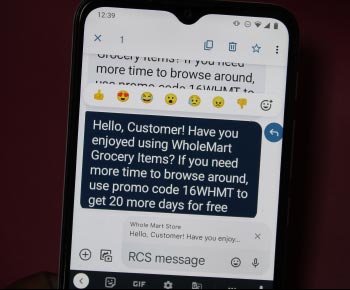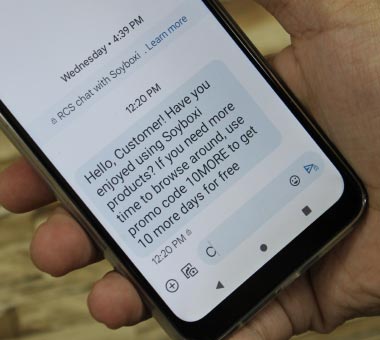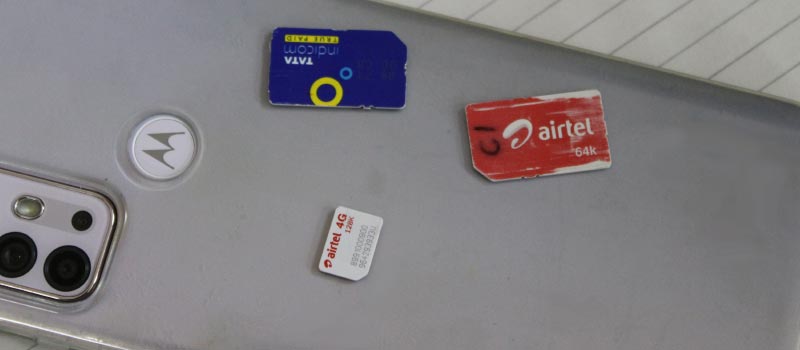-
Delivery Reports:
One of the most basic ways to track the success of a bulk SMS campaign is through delivery reports. Delivery reports provide information on the number of messages that were sent, the number of messages that were delivered successfully, and the number of messages that failed to deliver. This information can help businesses and marketers determine the success rate of their campaign and make necessary adjustments to improve the delivery rate.
-
Click-Through Rates (CTRs):
Click-through rates are a measure of the number of clicks on a link included in the SMS message. By tracking the click-through rates of an SMS campaign, businesses and marketers can gauge the effectiveness of their messaging and determine which messages are resonating best with their target audience. This can help them refine their messaging for future campaigns and improve the overall effectiveness of their marketing efforts.
-
Conversion Rates:
Conversion rates are a measure of the number of recipients who completed a desired action after receiving an SMS message, such as making a purchase or filling out a form. Tracking conversion rates can help businesses and marketers understand how effective their SMS campaign is at driving desired actions and help them optimize their messaging and calls-to-action (CTAs) for improved results.
-
Response Rates:
Response rates are a measure of the number of recipients who respond to an SMS message, such as by replying to the message or clicking on a link included in the message. Tracking response rates can help businesses and marketers understand how their audience is engaging with their messaging and what types of messaging are resonating best with their target audience.
-
Geographic and Demographic Data:
Many bulk SMS software solutions provide geographic and demographic data on the recipients of the messages, including their location, age, gender, and other relevant information. This data can help businesses and marketers better understand their target audience and create more targeted messaging to improve engagement and conversion rates.
-
A/B Testing:
A/B testing involves sending two versions of a message to a portion of the audience and measuring the response rates for each version to determine which version is more effective. This method allows businesses and marketers to refine their messaging and improve their SMS campaigns for better results.
-
Analytics and Reporting:
Many bulk SMS software solutions provide analytics and reporting tools that allow businesses and marketers to track key metrics and visualize the success of their campaigns over time. These tools can provide insights into trends and patterns in campaign performance, as well as identify areas for improvement.
Integrating Bulk SMS Software With Other Marketing Tools or Platforms
You can integrate bulk SMS software with other marketing tools or platforms to improve the efficiency and effectiveness of your marketing campaigns. Here are some of the most popular integrations for bulk SMS software:
-
CRM Platforms:
Many businesses use customer relationship management (CRM) platforms to manage their customer data and interactions. Integrating bulk SMS software with your CRM platform can help you send targeted messages to specific groups of customers based on their behavior, preferences, and demographics.
-
Marketing Automation Platforms:
Marketing automation platforms allow businesses to automate their marketing activities, such as email campaigns and social media posts. By integrating your bulk SMS software with your marketing automation platform, you can create personalized SMS campaigns that are triggered by specific actions or events, such as website visits or abandoned carts.
-
Email Marketing Platforms:
Email marketing is one of the most popular marketing channels for businesses, and integrating your bulk SMS software with your email marketing platform can help you reach your customers on multiple channels. You can use SMS to complement your email campaigns, for example, by sending SMS reminders or alerts about upcoming promotions.
-
Social Media Platforms:
Social media platforms offer a powerful way to engage with customers and build brand awareness. Integrating your bulk SMS software with your social media platform can help you grow your SMS subscriber list by promoting your SMS campaigns on social media, and by allowing customers to sign up for SMS alerts directly from your social media pages.
-
E-commerce Platforms:
Many businesses use e-commerce platforms to sell products and services online. By integrating your bulk SMS software with your e-commerce platform, you can send SMS alerts and notifications to customers about their orders, delivery status, and other important updates.
-
Analytics Platforms:
Analytics platforms allow you to track and measure the success of your marketing campaigns, including your SMS campaigns. By integrating your bulk SMS software with your analytics platform, you can monitor key metrics such as open rates, click-through rates, and conversion rates, and use this data to optimize your SMS campaigns for better results.
Note: To integrate your bulk SMS software with other marketing tools or platforms, you will typically need to use application programming interfaces (APIs) or third-party integration tools. Your bulk SMS software provider should be able to provide guidance on how to set up integrations, and should offer support to help you troubleshoot any issues that may arise. With the right integrations in place, you can create more effective, targeted, and personalized SMS campaigns that help you achieve your marketing goals.


